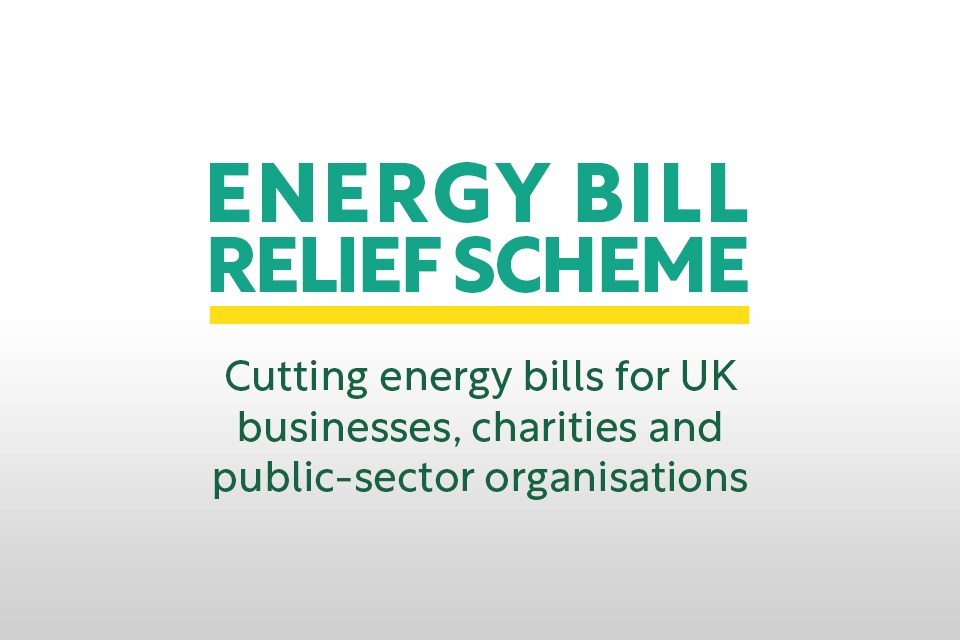Energy Bill Relief Scheme To Help with Energy Bills for Businesses
The Business Secretary, Jacob Rees-Mogg announced a scheme called the Energy Bill Relief Scheme, to help with energy bills for businesses, voluntary sector organisations, such as charities and public sector organisations such as schools, hospitals and care homes. This includes hair & beauty salons and barbershops in the UK who are:
· on existing fixed price contracts that were agreed on or after 1 April 2022
· signing new fixed price contracts
· on deemed / out of contract or variable tariffs
· on flexible purchase or similar contracts
How does it work?
The Government will compare what you are estimated to pay to your energy supplier against an amount they have set. The Government amount is called a baseline and is priced at less than what it is expected suppliers will pay for wholesale energy this winter.
The Government supported price has been set at:
£211 per megawatt-hour (MWh) for electricity
£75 per MWh for gas
(A comparable rate will be set shortly for Northern Ireland.)
This is less than the expected price from energy suppliers which is:
£600 per MWh for electricity
£180 per MWh for gas
However, the reduction only applies to the wholesale price of your energy not your final cost. This is to keep it in line with the Energy Price Guarantee for domestic customers ie your home energy bills. Your final per unit price could include network charges and operating costs, plus the impact of competition between suppliers. It will also change for different contracts and tariffs.
Fixed Contracts
The discount will be based on the difference between the government-supported price and the wholesale price for the day that the fixed contract started. The Government will publish the wholesale prices and will use for calculating this for each day from 1 April 2022.
Variable, deemed, and all other contracts including those due to renew
The discount will reflect the difference between the Government supported price and relevant wholesale price but will be subject to a 'maximum discount' that will be determined at the beginning of the scheme.
If you are on a variable or flexible contract, you will need to choose if you want to move to a fixed contract. This is likely to suit you if you don't want your price to keep changing each month. Your supplier should be in touch to discuss this.
When will I receive my benefit?
This will be applied automatically, and you will see the discount from your October bill – which you usually receive in November. You will continue to receive this benefit until 31st March 2023. The energy situation will then be reviewed.
PLEASE NOTE: If you get a message asking for your bank details, this could be a scam. You can report messages you think are suspicious
What do I need to do?
Business owners do not need to do anything as the Government expects suppliers to contact them over the coming weeks to explain what will happen. The discount on wholesale energy is same for every supplier. However, we advise contacting your supplier to ensure that you will get the most benefit from this new scheme.
Energy brokers have no influence over the reductions that will be applied to wholesale energy costs under this scheme. You do not have to take out a new contract or change your contract for appropriate reductions to apply to your bills automatically.
Case Example
A small retail shop uses around 1 MWh of electricity and 2 MWh of gas each month.
They are on a variable contract, giving them a current monthly energy bill of around £1,400 per month. As they are on a variable contract, they can receive support up to the Maximum Discount (currently estimated to be £405/MWh for electricity and £115/MWh for gas).
Applying the Maximum Discount rates means that their monthly energy bill reduces by around 45%, leaving them with a bill of around £800 per month.
For more advice and information about the Energy Bill Relief Scheme please visit the UK Government website.
Richard Lambert, NHBF chief executive, said: "The energy support announced today is a lifeline for many businesses in the hair & beauty sector that have battled through the last two years. The Government has listened, and we will be providing further evidence to make the case for hair & beauty as a 'vulnerable industry' needing support after the initial six-month period has ended."
Other organisations such as British Beauty Council are advocating for the government to extend the cuts beyond the six-month period to ensure long-term relief.

